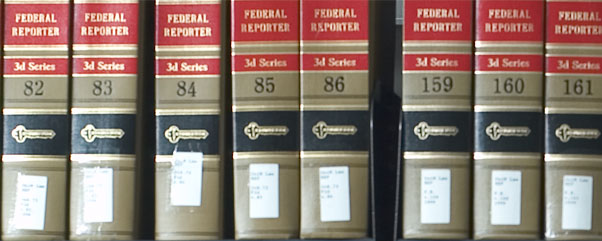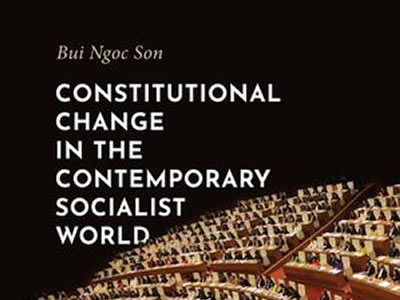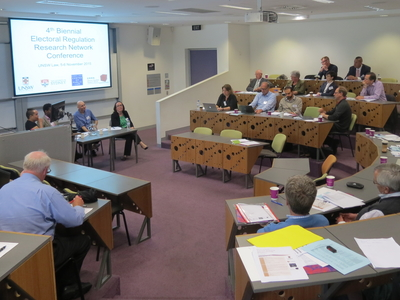
- News item
Regulation of Australian Elections – Introductory Course
In September, ERRN held the biennial introductory course, ‘Regulation of Australian Elections’ over two days at Melbourne Law School.The course provided electoral commission staff with an introduction to research and scholarship on the regulation of Australian elections, as well as a forum to connect and share insights.Across nine sessions delivered by election experts, the course explored:Australian constitutional framework of elections (Professor Sarah Murray, University of Western Australia)Voting rights (Professor Graeme Orr, University of Queensland)Compulsory Voting (Professor Lisa Hill, University of Adelaide)Forms of voting (Dr Ferran Martinez i Coma, Griffith University)Political finance (Associate Professor Yee-Fui Ng, Monash University)Media in elections (Professor Andrea Carson, La Trobe University)Australian party system (Dr Narelle Miragliotta, Monash University)Experiments in election research (Associate Professor Aaron Martin, University of Melbourne)Electoral commissions (Mr Michael Maley, independent election expert)The course fostered rich discussion of key issues including mis- and dis-information, the ‘ticks and crosses’ debate that surrounded referendum voting, as well as diversity, inclusion, and the integrity of the electoral process in Australia and overseas. The networking reception held after the first day was a particular highlight, providing participants with the opportunity to connect with colleagues from various electoral commissions.Feedback received from participants indicated that the course was highly relevant to the work conducted by electoral commission staff.

- News item
Proportionality, Facts and Public Law Adjudication
To mark the launch of Dr Anne Carter’s book Proportionality and Facts in Constitutional Adjudication the CCCS Global Public Law Seminar Series hosted a panel discussion of proportionality and facts in constitutional adjudication. The Honourable Pamela Tate KC formally launched the book, and was joined by panellists Joe Tomlinson, Niels Petersen, Cora Chan and Anne Carter to discuss the book and its contribution to debates about the role of facts in public law, questions of deference and expertise, as well as comparative perspectives on proportionality.In this seminar, our panellists critically reflected upon the development of the constitutional freedom over the last 30 years and shared their thoughts in relation to its future. The panel consisted of barrister Kathleen Foley S.C., Professor Dan Meagher (Faculty of Business and Law, Deakin University) and Professor Adrienne Stone (Melbourne Law School, University of Melbourne). Professor Michael Crommelin AO (Melbourne Law School, University of Melbourne) chaired the event.

- Researcher profile
Michael Crommelin
Academic profile of Professor Michael Crommelin, Melbourne Law School

- Past project
Enhancing Local Government Democracy: City of Melbourne Project
The Electoral Regulation Research Network project focused on the nature of local government democracy in the City of Melbourne. It aims to investigate the relationships that operate between the City of Melbourne and the wide range of people and organisations that use its facilities and services – residents, businesses, workers, commuters, shoppers ad others.

- News item
The potential of s100A ITAA36 to address tax avoidance using trusts
On 17 August 2023, Sonali Walpola, Senior Lecturer in the College of Business and Economics at the Australian National University, presented a hybrid seminar on the potential of s100A ITAA36 to address tax avoidance using trusts and why the Full Federal Court’s approach in Guardian should be treated with caution.Seminar abstractSection 100A of the Income Tax Assessment Act 1936 (ITAA36), enacted in 1979, is an important integrity measure in the trusts arena.The provision applies where a beneficiary is made presently entitled to trust income where the economic benefits relating to the present entitlement are enjoyed by another party. Currently, Section 100A ITAA36 is in the spotlight. The Commissioner relied on s100A in two cases which were the subject of Federal Court appeals in 2023—Commissioner of Taxation v Guardian AIT Pty Ltd [2023] FCAFC 3 (Guardian), where the Commissioner was unsuccessful (at least on s100A) and the ‘BBlood’ litigation (B&F Investments (as trustee for the Illuka Park Trust) v Commissioner of Taxation [2023] FCAFC 89), where the Commissioner was successful. It is centrally argued that the Full Court’s approach to s100A in Guardian is overly narrow, and the decision should be treated with caution due to its failure to consider the most authoritative and salient s100A precedents. While the general anti-avoidance rule in Part IVA ITAA36 was successfully used in Guardian, prior case law shows that s100A is the more robust anti-avoidance mechanism in the trusts arena because it is not hindered by problems that have beset Part IVA, including establishing a dominant tax avoidant purpose. This paper highlights that a broad, non-technical approach to s100A was authoritatively laid down in the only High Court decision on s100A, Raftland Pty Ltd v Commissioner of Taxation [2008] HCA 21 (Raftland), but extraordinarily, the Full Court in Guardian does not once discuss or cite Raftland.

- Publication
Submission Guidelines
Submission guidelines for the Electoral Regulation Research Network and Democratic Audit of Australia working paper series

- Researcher profile
Publications
View publications by members of the Centre for Comparative Constitutional Studies.

- Current project
Constitutional Resilience in South Asian Democracies
This project is examining the design of constitutional institutions and connections with the resilience of democracy.

Publications
The Laureate Visiting Fellowships in Constitutional Law offers outstanding female doctoral and female early career researchers the opportunity to participate in an intensive mentoring program relative to the Laureate Program with Professor Adrienne Stone, ARC Kathleen Fitzpatrick Australian Laureate Fellow, for up to two months; and includes involvement in events, workshops, and conferences.

- Publication
Governments as Regulators and Consumers of Ethical AI
Gabby Bush and Jeannie Paterson published this piece on regulating and contracting Ethical AI for governments in the Turkish Policy Quarterly.

- Past project
The Desirability and Feasibility of Convenience Voting in Australia Project
This Electoral Regulation Research Network research project used a mixed method research design to explore how voters, legislators and electoral commissions perceive the challenges presented by the extension of convenience voting – both in terms of its growing use among electors and the liberalisation of its forms.

- Researcher profile
William Partlett
Academic profile of Associate Professor William Partlett, Melbourne Law School

- Event
Constitutional Change in the Contemporary Socialist World
Wednesday 4 November, 2020

- Researcher profile
Jesse Hartery

2018 Visiting Fellows
View the 2018 Visiting Fellows of the Laureate Program in Comparative Constitutional Law.

- Researcher profile
People
The Centre for Comparative Constitutional Studies hosts a diverse range of individuals who are dedicated to the research and practice of a range of public law matters, in Australia and across the globe.

- Publication
- Current project
- Past project
Digital Campaigning And Political Finance In The Asia And The Pacific Region
The report studies the intersection between digital campaigning in elections, and political finance and its regulation in Asia and the Pacific region.

- News item
Researching public law: a panel discussion on legal method
This CCCS Global Public Law Seminar addressed the issue of method, and feature leading scholars who have contributed to the important forthcoming book, Researching Public Law in Common Law Systems (Edward Elgar). This collection, edited by Professors Paul Daly and Joe Tomlinson, is the first to offer a systematic treatment of public law methods in common law systems. Our international panel of leading public lawyers reflected on the issue of legal method, with a specific focus on doctrinal method and legal reason, Indigenous approaches, and comparative law.In this seminar, our panellists critically reflected upon the development of the constitutional freedom over the last 30 years and shared their thoughts in relation to its future. The panel consisted of barrister Kathleen Foley S.C., Professor Dan Meagher (Faculty of Business and Law, Deakin University) and Professor Adrienne Stone (Melbourne Law School, University of Melbourne). Professor Michael Crommelin AO (Melbourne Law School, University of Melbourne) chaired the event.

- News item
- Event
News and Events
Electoral Regulation Research Network current and past news and events

- Past project
Bougainville referendum and beyond
In 2019 the National Research Institute of Papua New Guinea and the Constitutional Transformation Network prepared two studies to inform leaders in Bougainville and PNG on the future governance of Bougainville.

- Current project
Major Research Projects
View current and past major research projects conducted by the Centre for Comparative Constitutional Studies, Melbourne Law School.

- News item
Post-Soviet as post-colonial
What is the relationship between post-colonial theory and constitutionalism? What role does the construction of history play in this interaction? This seminar discussed these questions in the context of William Partlett and Herbert Küpper’s new book, The Post-Soviet as Post-Colonial: A New Paradigm for Understanding Constitutional Dynamics in the Former Soviet Empire. It addressed three main questions.In this seminar, our panellists critically reflected upon the development of the constitutional freedom over the last 30 years and shared their thoughts in relation to its future. The panel consisted of barrister Kathleen Foley S.C., Professor Dan Meagher (Faculty of Business and Law, Deakin University) and Professor Adrienne Stone (Melbourne Law School, University of Melbourne). Professor Michael Crommelin AO (Melbourne Law School, University of Melbourne) chaired the event.

- News item
Book Launch and Panel on Company Directors, Corporate Law and Governance
On Wednesday 8 November 2023, the Corporate Law and Financial Regulation program of the Melbourne Centre for Commercial Law celebrated the launch of two books written by, or in honour of, Professor Ian Ramsay AO:Ian Ramsay, Company Directors: Principles of Law and Corporate Governance (LexisNexis, 2nd ed, 2023).Rosemary Teele Langford (ed), Corporate Law and Governance in the 21st Century: Essays in Honour of Professor Ian Ramsay (Federation Press, 2023)The books were launched by ASIC chair, Joseph Longo, which was followed by an expert panel discussion of key issues concerning company directors, corporate law and governance.
